Content Sections
Last year, the Economist Intelligence Unit’s “Tackling Obesity in Asean” report confirmed that Malaysia has the highest rates of obesity and overweight among the Asean countries. Last weekend Rob Verkerk PhD and Meleni Aldridge from ANH-Intl came together with other international speakers and local experts in Kuala Lumpur to work with some of the region’s top doctors and health professionals in an effort to turn the tide on this insidious yet preventable health crisis.
The International Annual Nutrition and Lifestyle Symposium, entitled ‘New Frontiers in Healthcare - from disease treatment and prevention to health creation’, organised jointly by the Association of Integrated Medicine Malaysia (AIMM) [Persatuan Perubatan Integrative Malaysia], UK-based, Alliance for Natural Health International (ANH-Intl) and Integrative Conferences PLT, took place from 23rd to 25th of November 2018 at the Boulevard Hotel in Mid Valley, Kuala Lumpur.
The central theme of the symposium was metabolic flexibility. The evidence is now unequivocal in showing that the rapid transition in both the diet and the lifestyle of people in the region, is linked to a loss of metabolic flexibility — the root cause of spiralling rates of metabolic disease in the region, including obesity, type 2 diabetes, coronary heart disease and many forms of cancer.
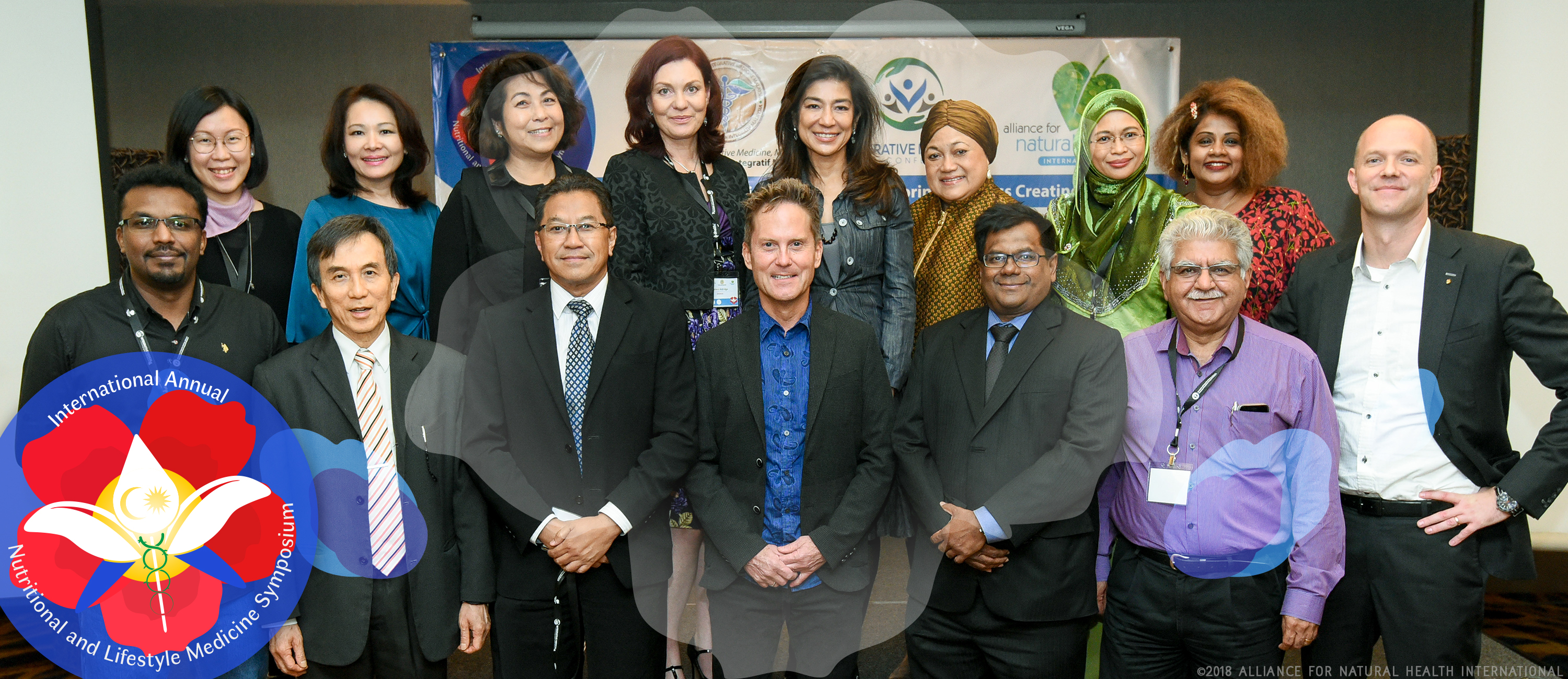
From left to right, top row:Kim Wong, Dr Goh Siew Lee, Dato Swee Lai Tan, Meleni Aldridge, Dr Janethy Balakrishnan, Puan Sri Dr Suriana Hanur Bt Harith, Dr Rosmawati Binti Mohammad, Datin Dr Omkara Rubini Lingham
Bottom row: Neil Lawrence, Dr Lim Hua An, Dr Amir Farid Bin Che Isahak, Rob Verkerk PhD, Dr Prabakaran S/O E Arulanandam, Dr Anil Kumar A/L Kundan Lal, Nils Bokström
Support from the Ministry of Health, Malaysia
We were honoured that YBhg Datuk Dr. Hj Rohaizat bin Hj Yon, Director of the Planning Division at the Malaysian Ministry of Health, delivered the keynote address on ‘Digital healthcare in nutritional and lifestyle medicine.’
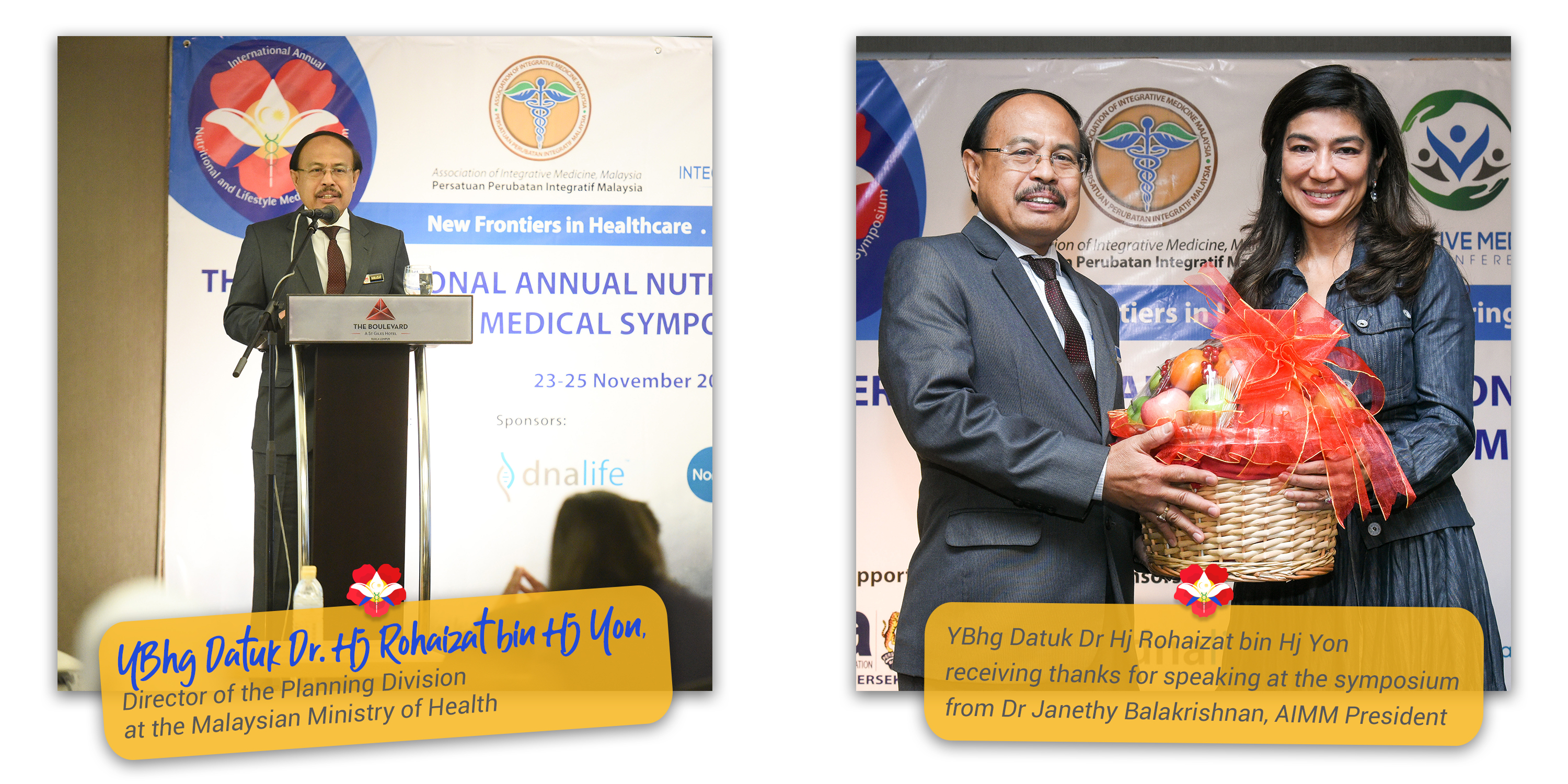
The Director of Planning’s office had this to say on social media yesterday:
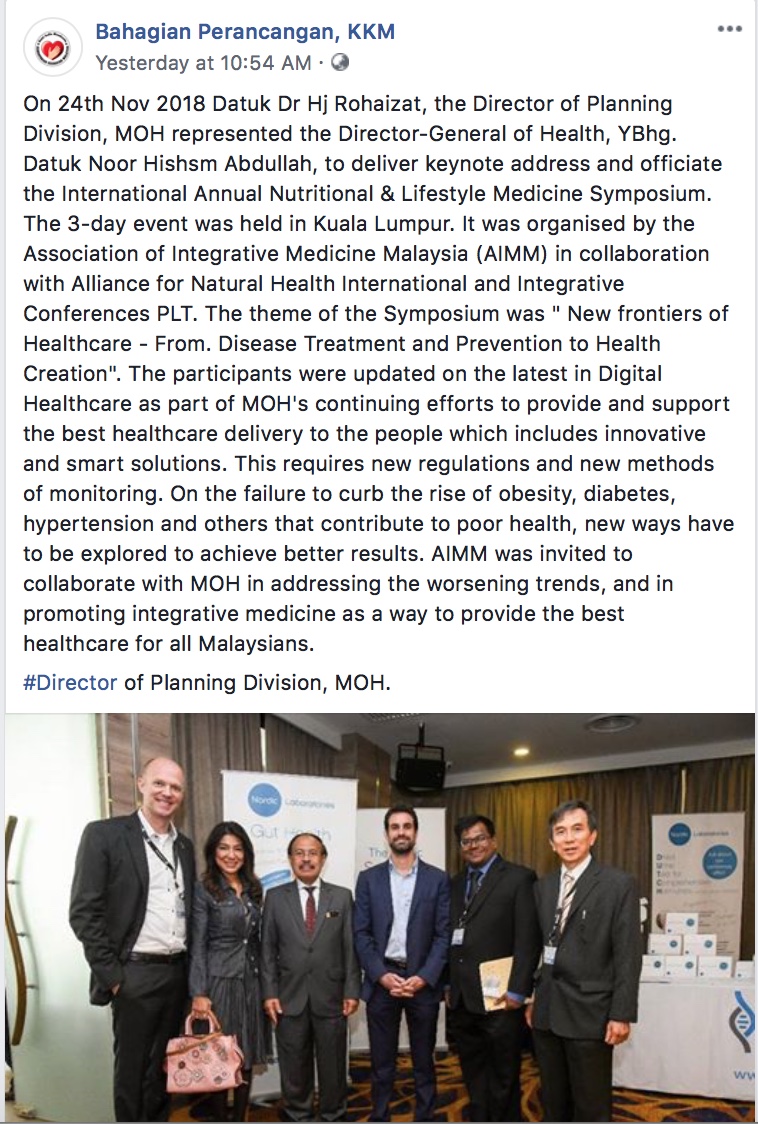
Internationally-acclaimed health and sustainability scientist, Robert Verkerk PhD and executive director of ANH-Intl, co-facilitator and speaker at the symposium, said, “We’ve seen a consistent failure of public health messaging in influencing health outcomes. Simply telling people to eat less and move more just doesn’t work. That’s in part because, as metabolic disease develops, the hormonal system in the body gets pushed so far out of balance that the mechanisms that normally regulate appetite and energy expenditure don’t function in the way nature intended.”
Dr Verkerk continued, “No two people respond in the same way, so it’s important to understand the nature of imbalances, so that individual protocols can be developed. Just like with other aspects of life, you have to work out exactly what’s broken before you can fix it.”
Scientific evidence now confirms that nutritional and lifestyle modifications, if delivered properly, provide a more powerful solution for metabolic diseases than drug-based methods. Dr Janethy Balakrishnan, AIMM President, with 30 years of clinical experience and as an internationally-recognised pioneer of drug-free approaches that correct metabolic imbalances, explained how de-prescription protocols, allied with non-pharmaceutical interventions, can transform outcomes for patients.
Dr Balakrishnan explained, “We need to transform the way in which we as doctors work with our patients. We shouldn’t dictate. We need to nurture, support and empower our patients, informed by the individual’s specific circumstances.”
Open to all…
The symposium, open to all, included health professionals, health and lifestyle coaches, companies in the health and fitness sectors as well as interested members of the public. Delegates from across Malaysia, Singapore, Indonesia, Cambodia, USA, Canada, France and Australia came to hear the latest scientific and lifestyle research and clinical evidence proven to deliver results for metabolic dysfunction.
With three decades of experience behind her, functional medicine practitioner and clinical psychoneuroimmunologist, Meleni Aldridge, explained the need to thoroughly understand the emotional and psycho-social drivers of an individual’s behaviour before any kind of prescription, be it nutritional, physical activity, mindfulness or medicinal, is offered. She said, “Many of our unhealthy behaviours are in some way protective and linked to our survival instinct. They may be linked to early-life trauma or some unmet need. If you don’t deal with these issues up-front, it’s very difficult to get someone to change how they behave so they can regenerate or optimise their health.”
Resolving the metabolic disease crisis requires a sea change in how a population, along with the supporting health professions, approach the management of health. It involves a shift from a disease-centric approach, to one that focuses on health creation and optimisation. As was revealed by various speakers at the symposium, it’s only in the last two or three years that sufficient biomedical and related tests have become available that enable the proper assessment of the multiple, interconnected sub-domains of human health.
Nils Bokstrom, speaker and co-organiser as the founder of Integrative Conferences PLT, summed the symposium up by saying that, “It was a truly amazing meeting where people from different specialties met with one common goal: restoring wellness, creating health. The future of medicine has finally arrived, and we are happy to be a part of this starting point.”
The speakers – spanning Malaysia, the UK, Sweden and Ireland
The symposium also introduced delegates to a health coaching course that leads to a qualification through an internationally accredited, state-of-the-art, online training course delivered by the international arm of Ireland-based, Irish Institute for Nutrition and Health. Its founder, Richard Burton, spoke to delegates on Saturday and Sunday and explained the important role of health and nutrition coaches as an intermediary between the public and medical doctors.
Feedback has been extremely positive since the symposium ended 2-days ago, with plans already on the table for the next one in early October 2019. Local naturopath, Monika Ramasamy, and an affiliate member of AIMM, had this to say:
“I just wanted to express my gratitude to all involved in a well-organised event with presenters and speakers of such high calibre. What I loved most about it was the variety of participants – all with the common goal to find solutions for an ailing health system in Malaysia and to be part of a network where we can all play our part to contribute towards seeing the patient/client as a whole person, not just his/her symptoms. The speakers demonstrated deep knowledge, passion and experience and I’m looking forward to the next event already. Now it’s time for me to digest the wealth of information and skills taught. Imagine the vast scope of possibilities! This was 3 full days ‘just’ about metabolic flexibility, i.e. there is a place for all of us to focus on certain conditions, age-groups or interests and we can then refer and work as a unit in the best interests of the patient/clients. Thank you again for all your hard work and generosity to share your knowledge”.
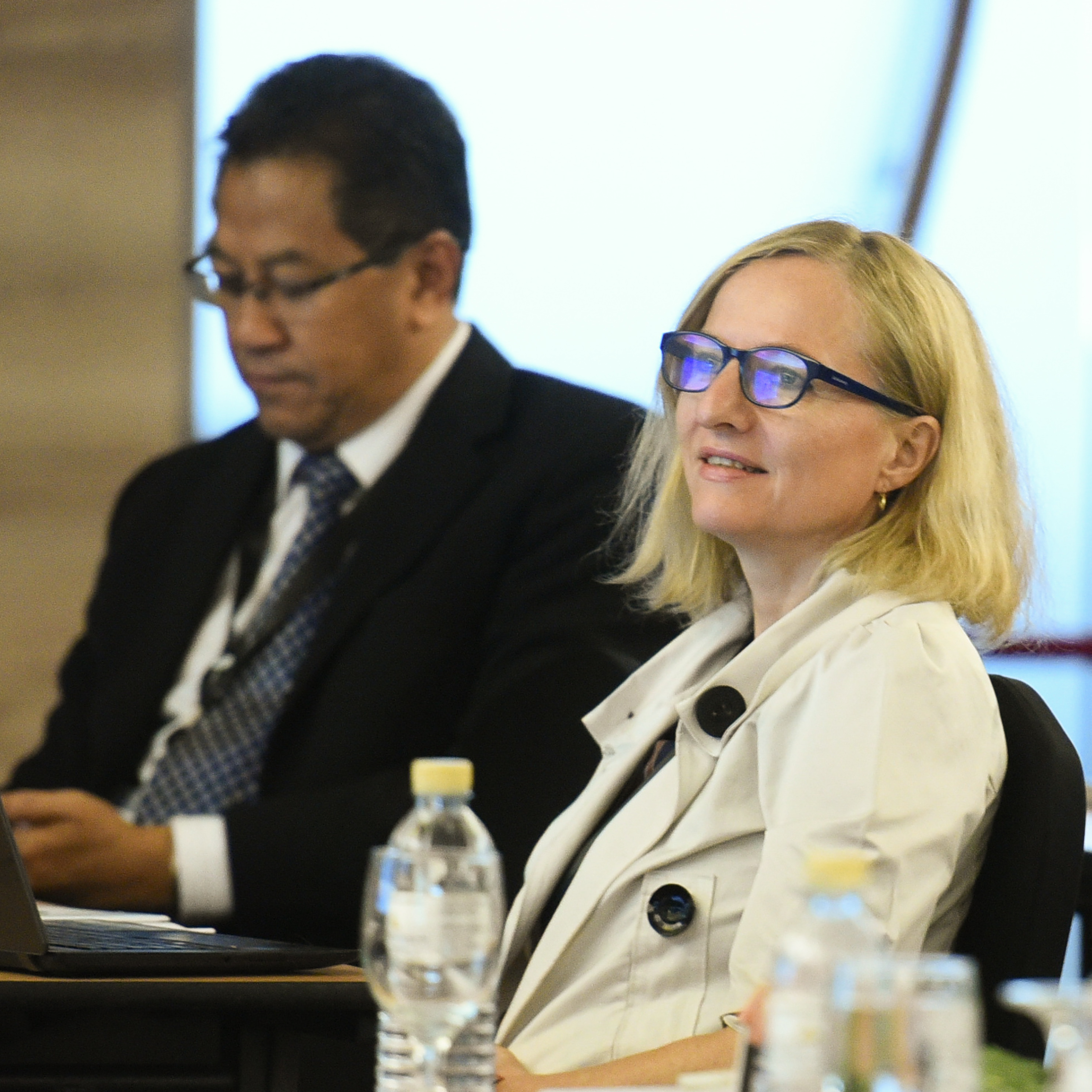
From left: Dr Amir Farid Isahak MBBS MMED MRCOG (also speaker and the MC of the symposium) and Monika Ramasamy, naturopath
The conference collage!
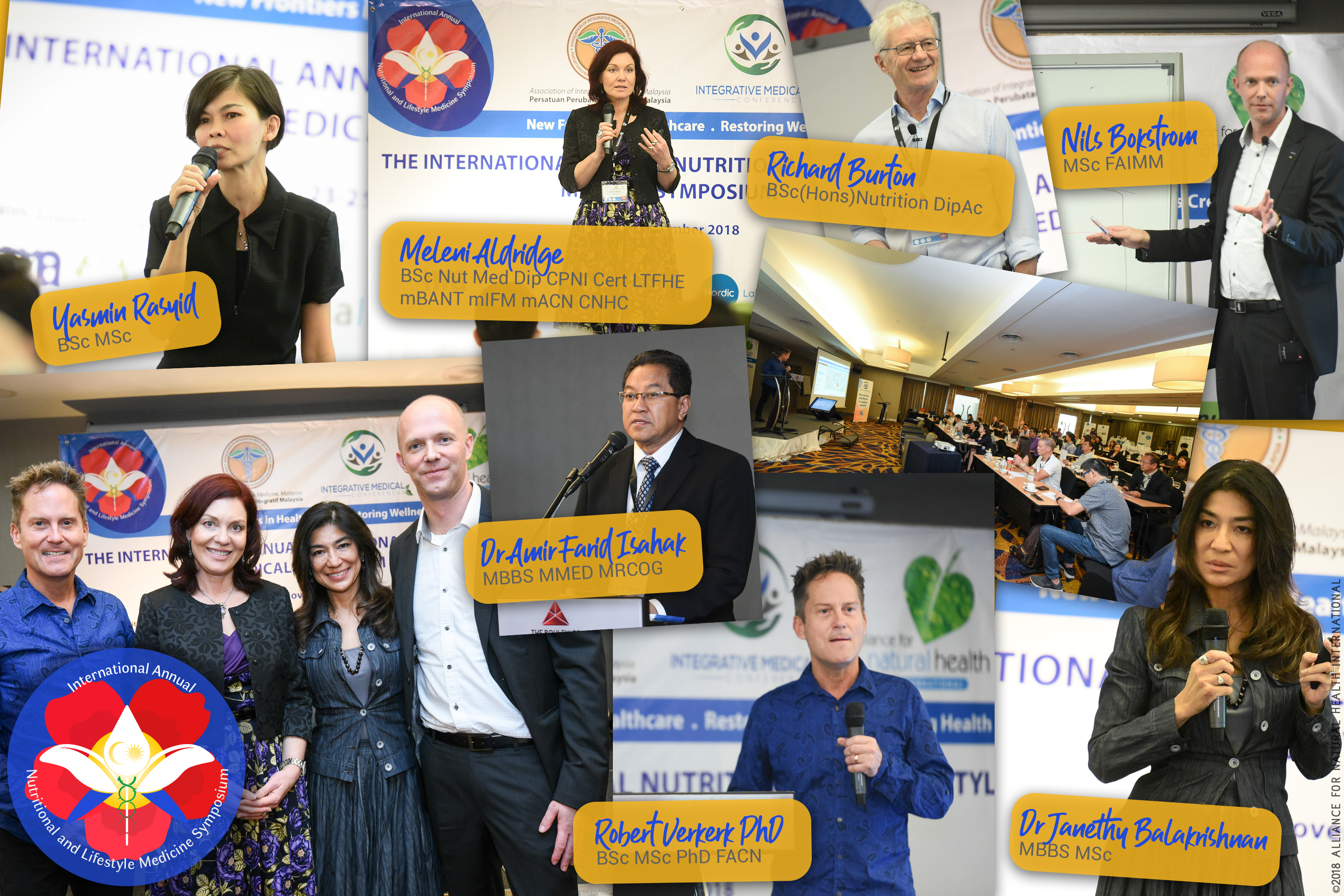








Comments
your voice counts
30 November 2018 at 7:29 am
This looks like it was absolutely fabulous. Wish I had been there - maybe next time.
03 December 2018 at 8:38 am
Hi Cate, we're working on the next Conference as we speak. We'd love to meet you if you're able to join us. Watch out for more information in the New Year.
Warm Regards
Melissa
Your voice counts
We welcome your comments and are very interested in your point of view, but we ask that you keep them relevant to the article, that they be civil and without commercial links. All comments are moderated prior to being published. We reserve the right to edit or not publish comments that we consider abusive or offensive.
There is extra content here from a third party provider. You will be unable to see this content unless you agree to allow Content Cookies. Cookie Preferences